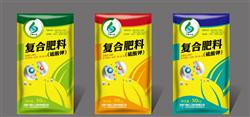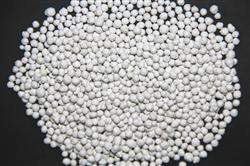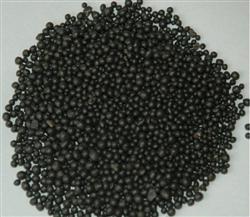What is compound fertilizer? How to apply compound fertilizer reasonably?

What is compound fertilizer? How to apply compound fertilizer reasonably? Please introduce that the first fertilizer invented by human beings in the world is compound fertilizer (mixed fertilizers containing nitrogen, phosphorus, potassium and various trace elements are produced from bird manure and sulfuric acid), but it is of low concentration. With the development of chemical fertilizer industry, human beings have successively invented high concentration elemental fertilizers. Due to people's understanding of balanced fertilization and the continuous improvement of rational fertilization technology, especially the development of soil testing and recommended fertilization. People use all kinds of elemental fertilizers together, which promotes the development of fertilizer compounding and compound mixing technology. On the basis of fully drawing lessons from these advanced experiences of foreign countries, our country develops compound fertilizer and compound fertilizer industry which is suitable for our country. The advantage of compound fertilizer is that it is the product of combining the principle and technology of balanced fertilization with fertilizer products, or the product of materializing scientific and technological achievements. At present, it still has exuberant vitality, will continue to develop and improve, and it will still develop with the progress and development of scientific balanced fertilization technology and the progress of technological technology, that is, it will enter the era of high-tech development. there will also be updated high-tech achievements will continue to be integrated into the compound fertilizer. (1) the fertilizer effect of compound fertilizer from the comparison between the fertilizer efficiency of compound fertilizer and conventional fertilization, the fertilizer efficiency of compound fertilizer with reasonable formula is always higher than that of conventional fertilization: the principle is that the effect of balanced fertilization (recommended fertilization by soil test or formula fertilization) is always better than that of conventional (customary) fertilization. The compound fertilizer with scientific and technological content, whether it is a general fertilizer for all kinds of crops in some areas, or a special fertilizer for various crops in some areas, is produced according to the principle of balanced fertilization, and its effect in the field is better than that of local conventional fertilization. At present, it is a common task for agricultural scientific research and industrial production departments to develop blended fertilizers with higher scientific and technological content in China to fully meet the nutritional needs of different soils and different crops. (2) the yield-increasing effect of rational application of compound fertilizer is related to soil fertility, crop species, fertilizer nutrient form, dosage and proportion, application technology and so on. 1. At present, due to soil application, the area of soil potassium deficiency in southern China is expanding, and the degree of phosphorus deficiency is alleviated, so it is appropriate to apply compound fertilizer based on nitrogen and potassium (NMagre K). The effect of phosphate fertilizer is remarkable in most areas of northern China, but the effect of potassium fertilizer is not obvious for the time being, so it is suitable to apply N and P compound fertilizer. However, the application of N, P and K ternary compound fertilizer should be advocated in cash crops and high-yield areas, and the effect of increasing yield is more significant. Eight rice experiments conducted by the Institute of soil and Fertilizer of Guangdong Academy of Agricultural Sciences showed that the average available P (P) and available K (K) were 10.9mg / kg and 30mg / kg respectively, that is, under the condition of rich phosphorus and lack of potassium, 20.8kg of nitrogen, phosphorus and potassium (NPK) compound fertilizer was applied per mu. The ratio of N (N), P (P) and K (K) is 1: 0.48, the average yield per mu is 374.5 kg / mu, the ratio of N (N) to P (P2O5) is 1: 0.6, the average yield per mu is 330.1 kg, and the ratio of N (N) to K (K2O) is 1: 0.48 per mu. It can be seen that there is little difference in the yield of nitrogen-potassium and nitrogen-phosphorus-potassium compound fertilizer on this kind of soil, and the effect of phosphate fertilizer on increasing yield is very small. The experiment of Tea Institute of Chinese Academy of Agricultural Sciences for many years shows that in the tea garden with hydrolyzed nitrogen 100 mg / kg, available phosphorus 15 mg / kg and available potassium 50 mg / kg, the yield-increasing effect of 1-type compound fertilizer is better than that of 2: 1: 1 compound fertilizer. If the available phosphorus in the soil is less than 10 mg / kg and the available potassium is less than 50 mg / kg, the yield increase effect of applying high-phosphorus and high-potassium compound fertilizer is better. The application of compound fertilizer should also be based on local soil nutrients. And climate change and other actual conditions flexibly. Some crops and plots also need to add some trace elements to compound fertilizer. two。 Due to crop application, suitable varieties of compound fertilizer were selected according to crop types and different nutritional characteristics. For example, the application of chlorine-free ternary compound fertilizer to tobacco can increase the thickness of tobacco leaves and improve the flammability and aroma of tobacco leaves; the application of ternary compound fertilizer to fruit trees, watermelons and other crops can reduce fruit acidity and increase sweetness; the application of ternary compound fertilizer to sugarcane and sugar beet can increase their sugar content; cereal crops mainly depend on the abundance and lack of soil nutrients. Due to the need to increase the processing cost, the special compound fertilizer is more used on cash crops, and the benefit will be higher. According to the results of local experiments, the suitable proportion of nutrients for the application of compound fertilizer on several cash crops is roughly. 1 ∶ 0.5 ∶ 1 or 1 ∶ 0.5 ∶ 0.5 compound fertilizer for cotton, 1 ∶ 0.35 ∶ 0.8 for hemp, 1 ∶ 0.23 ∶ 1.1 for sugarcane, 1 ∶ 0.7 ∶ 0.8 for sweet, 1 ∶ 2 ∶ 1 for peanut and soybean, 1 ∶ 0.4 ∶ 0.8 for watermelon, 1 ∶ 1 ∶ 0.5 for apple at seedling and young stage, and 1 ∶ 0.4 ∶ 0.8 for fruit tree throughout the year. In the tea garden, it is generally 1 ∶ 0.5 ∶. As far as tea is concerned, more phosphate fertilizer should be applied in black tea producing areas and more nitrogen fertilizer should be applied in green tea producing areas. 3. The properties of compound fertilizers applied according to nutrient forms are mainly determined by their nutrient forms, those containing nitrate nitrogen are used less or not in paddy fields, and those containing Chinese wolfberry soluble phosphorus are more suitable for application in acidic soil. Those with high chloride ions should not be applied on crops such as tobacco and potatoes which are sensitive to chlorine. The water-soluble phosphate compound fertilizer in Table 2-7 refers to the average yield of urea ammonium phosphate series, urea heavy calcium series, urea calcium series and so on. The fertilizer effect of these varieties of compound fertilizer is stable and suitable for all kinds of crops in paddy and dry fields in the south and north of China. Compared with nitrophosphate compound fertilizer, there were some differences in fertilizer efficiency in different soils with different available phosphorus content. the lower the available phosphorus content in the tested soil, the better the fertilizer efficiency of water-soluble phosphate fertilizer. Some tests can reach "significant" or "extremely significant" level by significance test. Therefore, the soil with serious phosphorus deficiency should apply water-soluble phosphorus compound fertilizer. Nitrophosphate fertilizer system and nitrophosphate potassium fertilizer system contain nitrogen, half of which is nitrate nitrogen, which is easy to be leached and fertilizer efficiency decreases in rainy southern sloping land and paddy field. Therefore, this kind of compound fertilizer should be applied on dryland soil, especially for dry crops in the north. 4. There are phosphorus or phosphorus and potassium nutrients in the compound fertilizer based on basic application, and most of the fertilizers are granular, which decomposes more slowly than the elemental fertilizer. Therefore, it is better to use as base fertilizer or seed fertilizer. The soil and Fertilizer Institute of Chinese Academy of Agricultural Sciences conducted an experiment in North China. In the case of adding simple nitrogen fertilizer as topdressing in the early or middle stage of crop growth, the base fertilizer was better than the base fertilizer, and the yield was significantly reduced by using the base fertilizer. The production has been reduced by more than 6%. According to the experiment of wheat conducted by the Institute of soil and Fertilizer of Shaanxi Academy of Agricultural Sciences, even if the single nitrogen fertilizer was not added during the crop growth period, the effect of one basal application of compound fertilizer was better than that of base fertilizer. It is better to apply the compound fertilizer deeply in the whole plough layer or as a fertilizer strip. The results of most experiments show that there is little difference between the two in the high fertility soil, but the effect of using strip as seed fertilizer in the middle and low yield field is better, which can increase the yield of wheat by 6.3% and corn by 6.5% compared with the deep application of the whole plough layer. Planting fertilizer strips must separate the seeds from the fertilizer, otherwise the emergence rate will be seriously affected and the yield will be reduced. When the amount of compound fertilizer is more, it is mainly base fertilizer, and when it is less, it can be concentrated as seed fertilizer, and an appropriate amount of simple nitrogen fertilizer is applied according to the seedling condition at the growth stage. In the case of insufficient base fertilizer or insufficient base fertilizer, early topdressing of appropriate amount of compound fertilizer also has a good effect on increasing yield. The effect of increasing yield is also good when the compound fertilizer with appropriate proportion of nutrients is applied to perennial crops during the whole growth period. Click to get more compound fertilizer application techniques
- Prev

What are the advantages and disadvantages of compound fertilizer?
What are the advantages and disadvantages of compound fertilizer? Please introduce the advantages and disadvantages of compound fertilizer: 1. There are many kinds of nutrients and high content; 2. Save the cost of packaging, storage, transportation and application; 3. Good physical shape, few by-components, few adverse effects on soil properties; 4. Factory balanced fertilization can be achieved. ...
- Next

What is humic acid compound fertilizer?
What is humic acid compound fertilizer? What are the categories? Please introduce the following four main types of humic acid compound fertilizer: 1. Humic acid compound fertilizer is a kind of high-grade family flower produced by scientific proportion on the basis of national patented product "humic acid compound spray fertilizer".
Related
- Fuxing push coffee new agricultural production and marketing class: lack of small-scale processing plants
- Jujube rice field leisure farm deep ploughing Yilan for five years to create a space for organic food and play
- Nongyu Farm-A trial of organic papaya for brave women with advanced technology
- Four points for attention in the prevention and control of diseases and insect pests of edible fungi
- How to add nutrient solution to Edible Fungi
- Is there any good way to control edible fungus mites?
- Open Inoculation Technology of Edible Fungi
- Is there any clever way to use fertilizer for edible fungus in winter?
- What agents are used to kill the pathogens of edible fungi in the mushroom shed?
- Rapid drying of Edible Fungi

